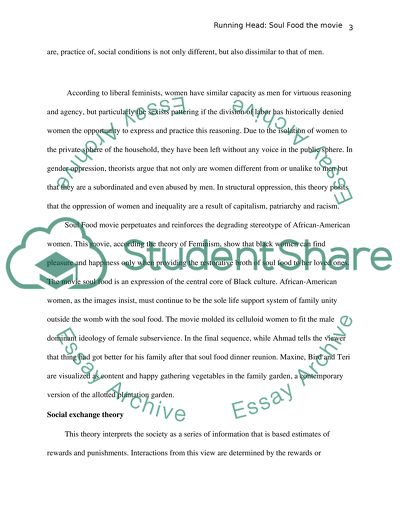Cite this document
(“Soul Food the movie Term Paper Example | Topics and Well Written Essays - 2750 words”, n.d.)
Retrieved from https://studentshare.org/sociology/1638684-soul-food-the-movie
Retrieved from https://studentshare.org/sociology/1638684-soul-food-the-movie
(Soul Food the Movie Term Paper Example | Topics and Well Written Essays - 2750 Words)
https://studentshare.org/sociology/1638684-soul-food-the-movie.
https://studentshare.org/sociology/1638684-soul-food-the-movie.
“Soul Food the Movie Term Paper Example | Topics and Well Written Essays - 2750 Words”, n.d. https://studentshare.org/sociology/1638684-soul-food-the-movie.


